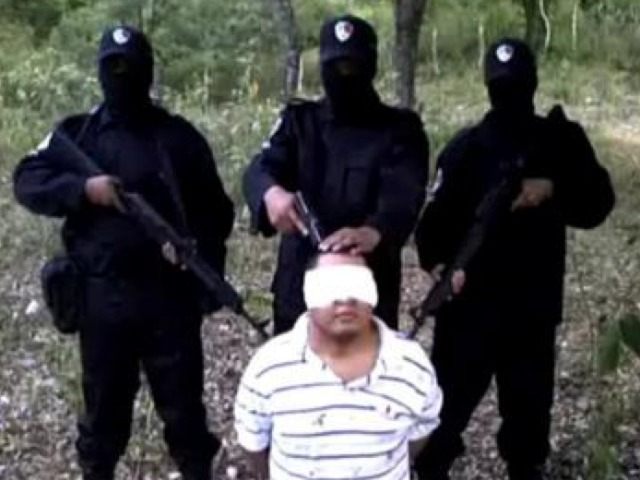PHOENIX, Arizona — As this city’s police department prepares to implement a soft approach to dealing with illegal immigrants during traffic stops and investigations, veteran law enforcement officials worry that the measure could provide a safe haven for Mexican drug cartels and lead to yet another explosion in gory crime scenes.
City officials, as well as key leaders within the Phoenix Police Department, are pushing for the return of a restrictive policy that prevents law enforcement officials from contacting U.S. Immigration and Customs Enforcement during traffic stops or during investigations, Breitbart Texas reported. The concern among veteran detectives is that this policy could have the same effect that a previous policy did that led to Phoenix seeing the a record setting number of murder linked primarily to illegal immigrants and Mexican drug cartels, Breitbart Texas reported.
Another dynamic that changed in Phoenix was the arrival of the illegal alien Mexican drug gangs and traffickers that were connected to transnational criminal organizations, also known as drug cartels.
During the 1980s, undercover narcotics investigators began to notice a very disturbing trend that involved sophisticated Mexican drug cartels and their gangs operating in the city; these gangs were pushing larger volumes of illegal drugs at much cheaper prices with the purity of the cocaine and heroin they were selling was much more potent. Due to the large quantities of cocaine, heroin and marijuana, these trafficking gangs were more heavily armed and would utilize sophisticated counter surveillance techniques when dealing with undercover officers.
Practically every major drug investigation that was being conducted by Phoenix PD or their partners would lead to a Mexican source who was the supplier with direct links to a cartel. Due to their cheaper prices, better quality of product and violence they were willing to carry out, the Mexican drug gangs were able to take control of the drug market in Phoenix and rest of Arizona with the exception of methamphetamine. They eventually cornered the methamphetamine market in the 1990s.
Investigators were forced to take extra precautions when arresting these criminals, using heavily armed SWAT teams to execute the takedown arrests. In some instances, SWAT teams deployed cover snipers to better protect undercover officers during face to face meetings with heavily armed drug gangs. In a similar fashion, prosecutors were forced to take special measures when charging members of these cartels due to their access to large amounts of cash and their ability to pay a large cash bond in order to flee to Mexico. In some cases, fugitive narcos who had been in the country illegally would return to Phoenix after a short cooling off period placing Spanish speaking undercover officers who were still working the street in danger due to their identities already being known to that cartel-connected gang.
By the 1990s and early 2000s, the homicide rate began to climb to alarming rates primarily attributed to disputes between Mexican cartel-linked gangs over lucrative drug distribution areas within the Phoenix metropolitan area; many of these deadly disputes stemmed from ongoing conflicts or rivalries that began in Mexico and spread into Arizona.
With the growth of the illegal alien population and the spread of the Mexican cartels, the narco-sub culture exploded and was accepted as mainstream by many in the form of bars and restaurants that started sprouting up all over the Phoenix metropolitan area. These establishments catered to narcorridos which are a type of Mexican folk drug ballads from northern Mexico. This type of music glorifies the narco lifestyle and pays homage to Mexican drug cartel members by praising their exploits in outsmarting their rivals and American law enforcement. The establishments that played this music and catered to the narco-lifestyle became a magnet for many of the drug related violence and murders that took place in the city.
Robert Arce is a retired Phoenix Police detective with extensive experience working Mexican organized crime and street gangs. Arce has worked in the Balkans, Iraq, Haiti, and recently completed a three-year assignment in Monterrey, Mexico, working out of the Consulate for the United States Department of State, International Narcotics and Law Enforcement Program, where he was the Regional Program Manager for Northeast Mexico (Coahuila, Tamaulipas, Nuevo Leon, Durango, San Luis Potosi, Zacatecas.)

COMMENTS
Please let us know if you're having issues with commenting.